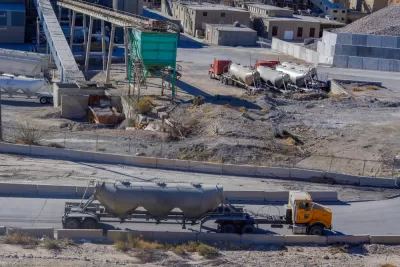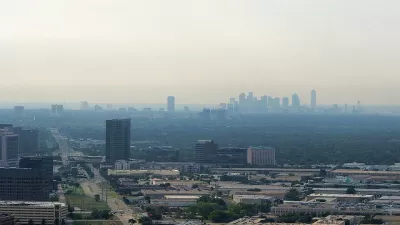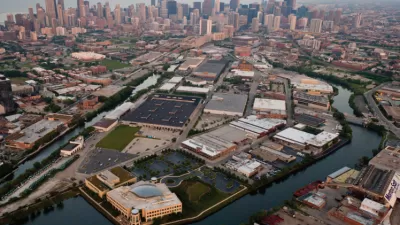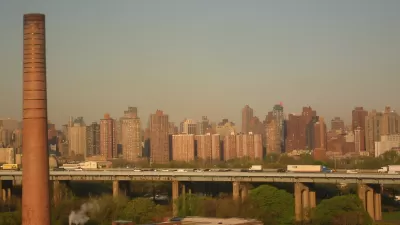Zoning in the U.S. was originally intended to keep noxious uses out of residential areas. Around Houston, which famously lacks a traditional zoning system, polluting uses are still granted broad permission to operate in residential areas.

Allyn West reports on the environmental problems created by concrete batch plants, and the residential neighborhoods dealing with the consequences.
The scene for this environmental justice drama is Harris County, Texas, where the Texas Commission on Environmental Quality (TCEQ) has granted 188 concrete plants the permits to operate, mostly in unincorporated parts of the county like Aldine, where eight concrete plants are currently operating. In Aldine, at least, local residents have scored a pair of recent victories to keep new concrete plants out.
"Though they produce one of the ubiquitous materials of cities, the concrete we pour for everything from sidewalks to stormwater pipes to skyscrapers, the unique combination of Houston’s lack of zoning, the region’s relentless outward growth and an overly permissive state environmental agency means that too many concrete batch plants are making it too hard to breathe," according to West.
This environmental justice issue has roots in the racist land use controls of the past, according to West. "Because land has been cheapened by redlining, disinvestment, restrictive covenants and environmental racism, polluters concentrate unevenly across the region, often intentionally in communities of color and low wealth, compounding other issues and creating entrenched disparities, almost all of which are being exacerbated by the coronavirus pandemic. Those who are exposed the most to pollution are the least responsible for it."
From the experiences of the community in Aldine, however, a model for resistance to the permissiveness of the TCEQ has emerged.
FULL STORY: ou don't want to live near a concrete batch plant. But TCEQ lets it happen too easily.

Alabama: Trump Terminates Settlements for Black Communities Harmed By Raw Sewage
Trump deemed the landmark civil rights agreement “illegal DEI and environmental justice policy.”

Planetizen Federal Action Tracker
A weekly monitor of how Trump’s orders and actions are impacting planners and planning in America.

The 120 Year Old Tiny Home Villages That Sheltered San Francisco’s Earthquake Refugees
More than a century ago, San Francisco mobilized to house thousands of residents displaced by the 1906 earthquake. Could their strategy offer a model for the present?

In Both Crashes and Crime, Public Transportation is Far Safer than Driving
Contrary to popular assumptions, public transportation has far lower crash and crime rates than automobile travel. For safer communities, improve and encourage transit travel.

Report: Zoning Reforms Should Complement Nashville’s Ambitious Transit Plan
Without reform, restrictive zoning codes will limit the impact of the city’s planned transit expansion and could exclude some of the residents who depend on transit the most.

Judge Orders Release of Frozen IRA, IIJA Funding
The decision is a victory for environmental groups who charged that freezing funds for critical infrastructure and disaster response programs caused “real and irreparable harm” to communities.
Urban Design for Planners 1: Software Tools
This six-course series explores essential urban design concepts using open source software and equips planners with the tools they need to participate fully in the urban design process.
Planning for Universal Design
Learn the tools for implementing Universal Design in planning regulations.
Clanton & Associates, Inc.
Jessamine County Fiscal Court
Institute for Housing and Urban Development Studies (IHS)
City of Grandview
Harvard GSD Executive Education
Toledo-Lucas County Plan Commissions
Salt Lake City
NYU Wagner Graduate School of Public Service





























